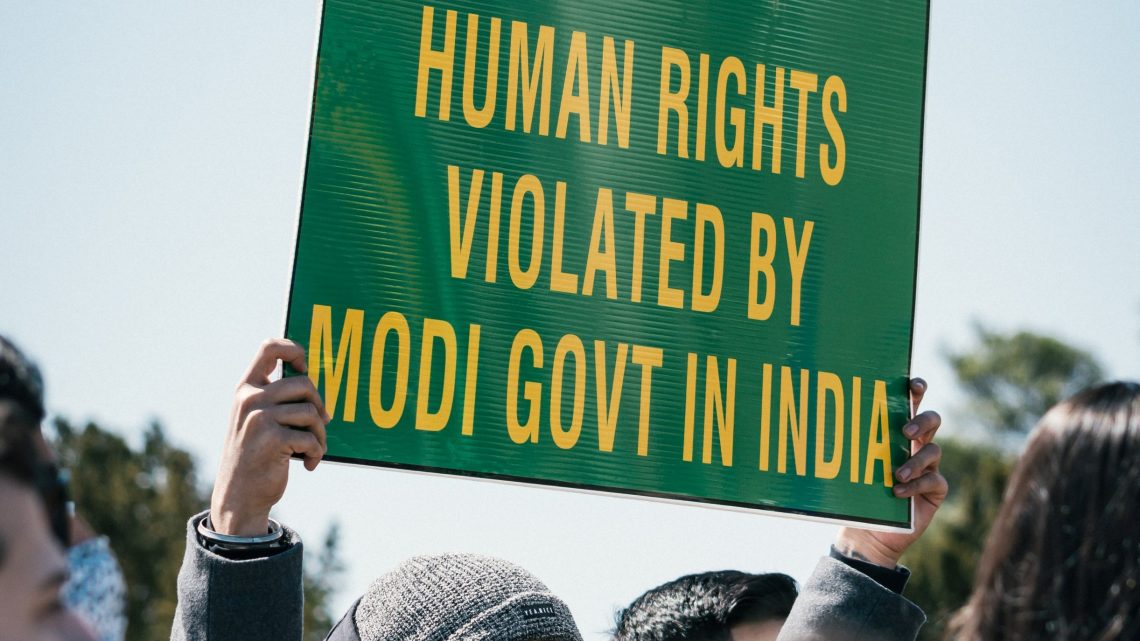
Amnesty International Report on Misuse of Indian Laws Undermining Civil Society and Freedom of Expression
November 5, 2023Amnesty International, an internationally recognized human rights organization, has recently released a damning report exposing the systematic misuse of Indian laws to curtail civil society activities and suppress freedom of expression. This report delves into the ramifications of specific legal instruments in India, such as the Unlawful Activities (Prevention) Act (UAPA), the Prevention of Money Laundering Act (PMLA), and the Foreign Contributions Regulation Act (FCRA). These laws, initially established to address legitimate concerns, have raised serious apprehensions about their misuse, with far-reaching implications, particularly for non-governmental organizations (NGOs) operating in the country.
The backdrop to this situation dates back to 2002, when India assumed the role of Chair at the Financial Action Task Force (FATF). During this time, laws such as the UAPA, PMLA, and FCRA were enacted as measures to combat unlawful activities, money laundering, and regulate foreign contributions to non-profit organizations. In 2010, subsequent amendments were made with the intent to bolster the regulatory framework for the non-profit sector in India.
However, what has transpired over the past decade is a cause for serious concern. As of 2022, over 20,600 licenses of NGOs have been canceled, and of these, nearly 6,000 were annulled since the beginning of the year. This abrupt and widespread action has had significant consequences.
Amnesty International’s investigation has found that out of the 16 NGOs and organizations examined, 11 experienced severe repercussions, including license cancellations, restrictions, and non-renewals of their FCRA licenses. The Indian government’s justifications for these actions have often been vague and somewhat dubious, accusing these organizations of maligning statutory entities, working against national or public interest, and hinting at potential violations of human rights laws. Many of the targeted NGOs have categorically denied these allegations, asserting that these are attempts to stifle and hinder their work.
The impact of these actions goes far beyond impeding the work of NGOs; it also seriously compromises their ability to adhere to international human rights standards. A significant number of these organizations have been forced to reduce their workforce by as much as 50-80%, rendering their operations gravely impaired. As one NGO representative stated, they are now in survival mode, using most of their resources to fight legal battles instigated against them.
One of the issues at the heart of this problem is the ambiguity of these laws. Despite amendments to the FCRA in 2020 and prior revisions, they do not fully align with the recommendations set forth by FATF. FATF guidelines specify that countries should target only “unscrupulous entities” identified through a “risk-based” and meticulously conducted investigation in relation to the financing of terrorism. The broad application of these laws and the uncertainty surrounding the allegations raised serious concerns about the implications for human rights and civil liberties.
Amnesty International has issued a clarion call for comprehensive reforms to these laws and their application. The report stresses the need to include civil society organizations in India’s FATF evaluation in line with FATF’s recommendations. It urges the FATF to ensure that Indian authorities are held accountable for the misuse of these laws, particularly against individuals and groups associated with civil society, and for safeguarding their freedom of expression and rights. The report also highlights the importance of addressing Indian government actions that contravene international human rights standards.
Therefore, Amnesty International’s report underscores the immediate necessity for a thorough reassessment of these laws and their application in India. It is essential to uphold human rights and civil liberties while effectively combating money laundering and terrorist financing. The report underscores the paramount significance of preserving the rights to expression, association, and assembly for all while simultaneously addressing financial crimes. This report serves as a clarion call, not only to Indian authorities but also to the global community, to ensure the protection of fundamental rights while combating illegal financial activities. The issues raised are not limited to the borders of India, as they have far-reaching implications for human rights and freedom worldwide.

